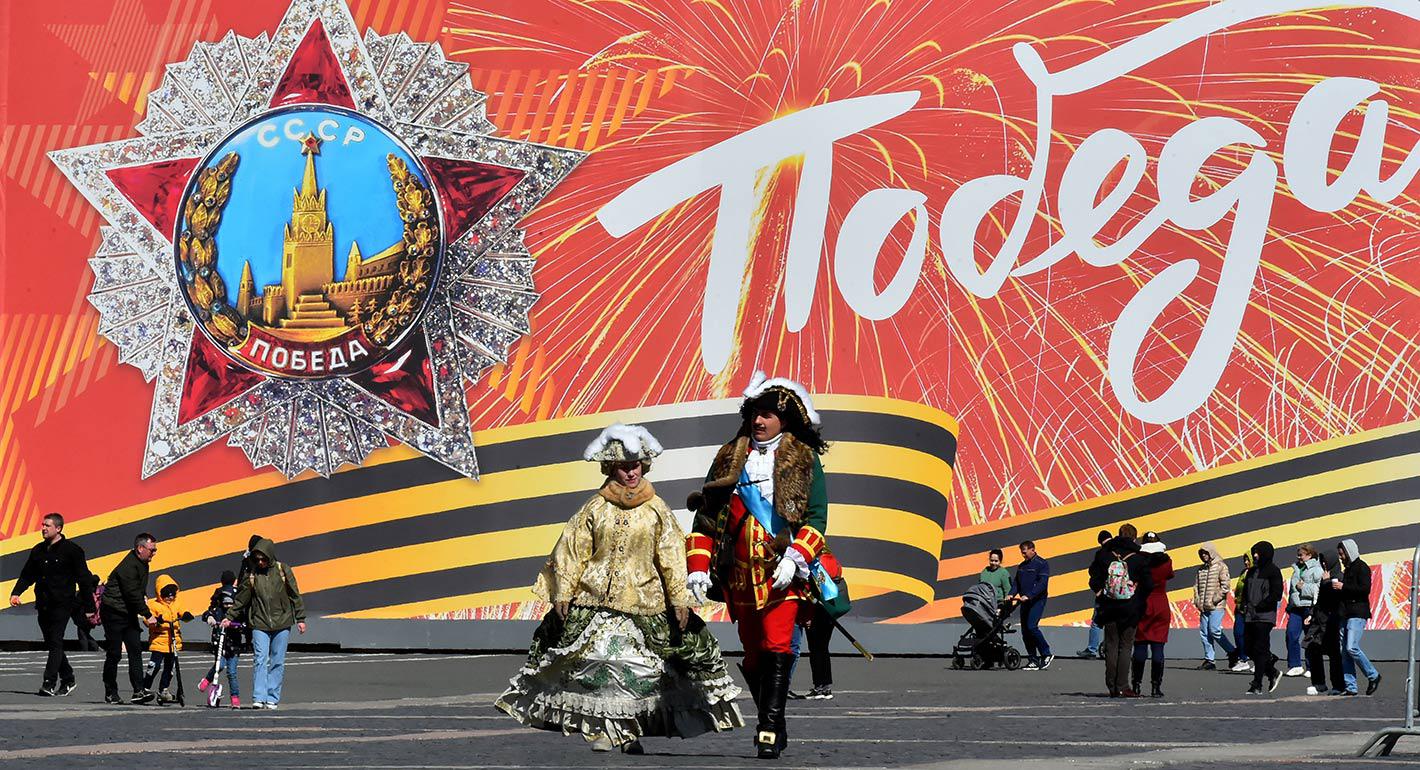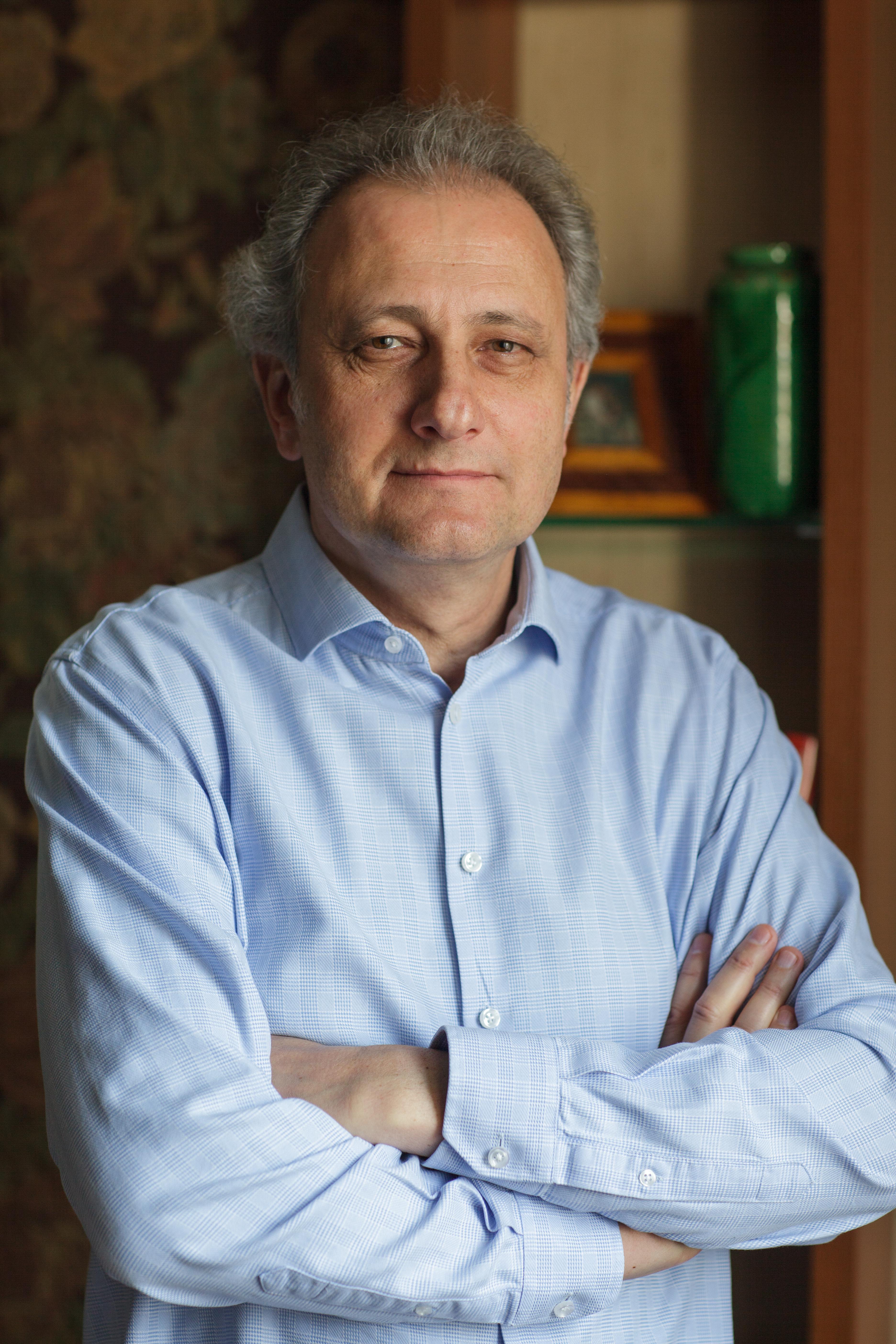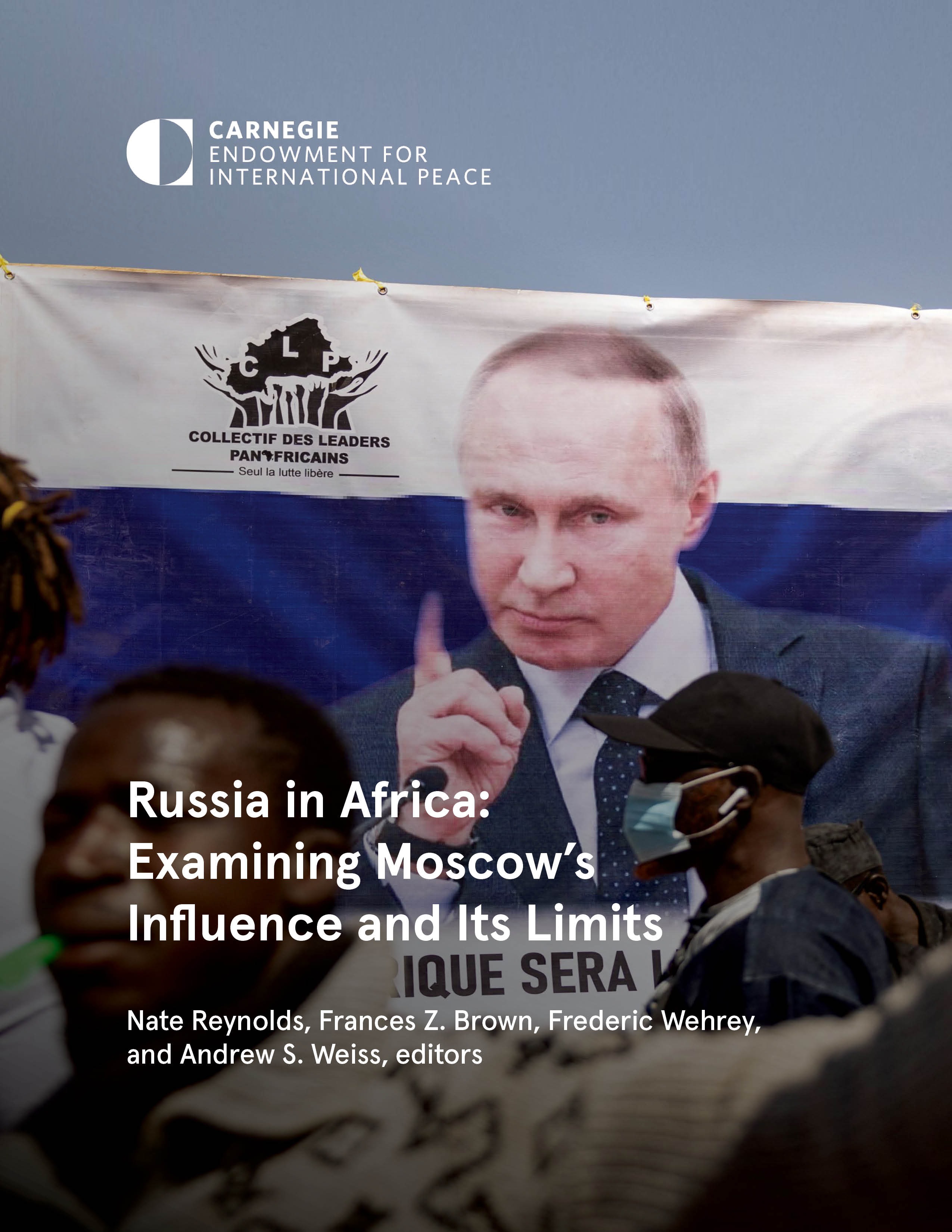Andrei Kolesnikov
{
"authors": [
"Andrei Kolesnikov"
],
"type": "other",
"centerAffiliationAll": "dc",
"centers": [
"Carnegie Endowment for International Peace",
"Carnegie Russia Eurasia Center"
],
"collections": [],
"englishNewsletterAll": "",
"nonEnglishNewsletterAll": "",
"primaryCenter": "Carnegie Russia Eurasia Center",
"programAffiliation": "russia",
"programs": [
"Russia and Eurasia"
],
"projects": [],
"regions": [
"Russia",
"Eastern Europe",
"Ukraine"
],
"topics": [
"Political Reform"
]
}
Source: Getty
Grabbing Defeat from the Jaws of Victory: How Will Putin Celebrate May 9?
The regime has no more screws to turn, and only one pedal is left: conflating what Russia is doing in Ukraine with the 1945 victory over Nazi Germany.
This article was originally published in Russian in the New Times.
It is hard to ignore the mounting speculation about how the Kremlin will mark the Victory Day public holiday, when Russians commemorate the Soviet victory in World War II. May 9 is the nation’s most important holiday. Tinged with both sadness and joyful solidarity, Victory Day—like every living thing in Russia—has been appropriated by Putin. That was vividly the case when Putin embraced a genuine grassroots initiative known as the Immortal Regiment, in which people march with photographs of relatives who fought in the war. The Kremlin turned that effort into yet another way of mobilizing the nation around the regime. The pattern is similar to how the regime has, for the last two decades, taken off lucrative businesses or targeted entrepreneurs who show signs of disloyalty. The most recent example of Oleg Tinkov having to sell out his share of a major financial services business seized in the wake of a critical post on Instagram about Ukraine is a case in point.
This comingling of the sacred and patriotic is becoming downright confusing. Patriarch Kirill, the head of the Russian Orthodox Church, has continued to lend support to Russia’s “special military operation” in Ukraine. His astonishing reasoning that “Russia did not attack anyone” has turned the question of why thousands have died, whole cities have been destroyed, and more than 5 million Ukrainians have become refugees into nothing less than a sacred mystery.
Still, May 9 will be different this year. Firstly, the moral defeat of the nation—the “special operation”—is being equated with victory in World War II, which is a sacred moment for every Russian (and many people all around the former Soviet Union). Secondly, this revered date is now being greeted with a lot of jitters inside the body politic amid fears of a possible announcement of general military mobilization in Russia, a full-scale declaration of war against Ukraine, and, perhaps, continued nuclear saber-rattling. This year, the holiday has been ruined twice over before it has even begun.
At the same time, the run-up to the Victory Day celebration has revealed that the regime has no more screws to turn. The brakes have clearly failed, and only one pedal is left: conflating what Russia is doing in Ukraine with the 1945 victory over Nazi Germany. This explains why the Kremlin continues to insist that in Ukraine it is fighting neo-Nazis cultivated by the West. Such forces have always sought Russia’s destruction. Every word is a lie, of course, but the regime has no other justification for what is happening in Ukraine. So the discourse has been reduced to agitprop and shouting.
This phenomenon is exacerbated by expressions of aggression and rage as well as calls to “keep going until the bitter end.” Modest Kolerov, head of the pro-Kremlin news agency Regnum, for example, wrote an article titled “Compromise with the West will amount to Russia’s capitulation, i.e., suicide.” Kolerov argued that “our country and our people have one main aim, just as they did 80 years ago: to survive and to be victorious. So death to the fascist occupiers!”
Never mind, then, that this time around, there is no Hitler on the other side, nor any occupiers, least of all fascist ones. Never mind that the Soviet Union won World War II together with its allies: Great Britain, the United States, and France. Never mind that without Putin, his retinue, his propagandists, and his elites, Russia would be a normal country and a comfortable place to live, with a flourishing economy and culture. None of this means anything: the main thing is to yell something as basic as possible.
Unfortunately, this yelling is starting to resemble Edvard Munch’s famous painting “The Scream.” Just like that image, a cry of horror drowns out all the natural feelings of a civilized person. That is the natural reaction of a person who starts to think about how many lives have been destroyed, both physically and mentally, by the “special operation.” The losses are felt most acutely in Ukraine, but also in Russia itself.
Another corollary to the official discourse about fighting Nazis is the Kremlin’s insistence that it is “liberating” those who, to put it mildly, had no such need while simultaneously “defending” itself from those who had no intention of attacking Russia. It is a classic leaf from the Russian imperial playbook. Back in 1939, Stalin “liberated” the Finnish working class from the “yoke” of the country’s legally elected leadership. He did something similar for the “kin” (sound familiar?) of western Ukraine and western Belarus in 1940.
The imperial concept of “Novorossiya” (New Russia) that was once used by Putin’s team to describe the land comprising the south of modern-day Ukraine has died down in the years following the annexation of Crimea. That historical term from the era of Catherine the Great had seen a shortlived revival. But since nature abhors a vacuum, a new, equally ridiculous fantasy project has emerged, dubbed “Southern Rus.” The “Manifesto of the Southern Rus People’s Council” that appeared in mid-April refers to “a fraternal friendship”—though it’s not quite as simple as that.
The manifesto represents the imperial tripartite model, in which the Russian people are effectively an older brother who speaks the state-forming Russian language and has taken under his wing his younger Ukrainian and Belarusian brothers, who insist on speaking in certain “dialects.” Such is the unsophisticated core of the concept of the “Russian world.” The application of this concept in real life has led to untold numbers of victims and the widespread destruction of infrastructure in Ukraine’s Russian-speaking regions. Such imperial and far-right fundamental gibberish, when applied in practice, is leading to rivers of blood, the debasement of human beings, and the barbaric destruction of normal life.
This blend of Soviet great-power grandstanding and haphazard far-right imperial nationalism, combined with the belief that the Russian people are superior to the rest of the world, is yielding some truly exotic ideological fruit, such as the pronouncements that: “Our special military operation in Ukraine is also contributing to the process of liberating the world from the neo-colonial yoke of the West,” or that Russia’s actions are aimed at getting rid of the “U.S.-centric model of world order.” These are both phrases uttered not by the Soviet Foreign Minister Andrei Gromyko, but by Russian’s current top diplomat, Sergey Lavrov. History repeats itself, the first time as tragedy, then as farce—but then comes full circle to end in even greater tragedy.
Ironically, nothing is more “U.S.-centric” than Russia’s state ideological discourse. The Russian authorities have an unhealthy obsession with the issue of LGBTQ rights in the West. The world itself is not nearly so focused on the United States, just as the West is not terribly fixated on debates about people’s sexual orientation. But the Russian establishment has its own fascinating impressions of the world, drawn from information and “analysis” compiled by the intelligence agencies. Increasingly, these insights are reminiscent of Jorge Luis Borges’ Book of Imaginary Beings. Just the other day, Security Council secretary Nikolai Patrushev told the official Rossiiskaya Gazeta newspaper that in the United States, “math lessons require students to sing and dance.”
Salvation apparently lies in sovereignty in everything, and in isolation from external influences. According to Patrushev, “Russia will see the expansion of the nomenklatura of domestic high-tech production.” Coming from a senior representative of a regime that has been in power in Russia for nearly twenty-three years now, and which is funded by Russian taxpayers, this begs the question: why hasn’t the “expansion of the nomenklatura” been achieved before now? Of course, if “nomenklatura” means senior officials, then that goal really has been achieved. The ranks of the nomenklatura have certainly expanded, in every sense of the word.
Every day the Russian authorities seem intent on persuading us that they can write their own increasingly outlandish version of the Book of Imaginary Beings. According to Patrushev, “Disciples of Hitler” intend to “destroy all of Russia’s heritage … using Slavs.” In Lavrov’s contributions, it’s not just the usual “Jewish-Banderites” (an ironic term that suggests Ukraine is run by Jewish supporters of the World War II-era Ukrainian fascist leader Stepan Bandera) who are running amok. Rather, Lavrov suggests, without irony, that Ukraine is in the hands of full-on Jewish neo-Nazis led by the country’s Jewish president, Volodymyr Zelenskyy.
These flights of fancy bring to mind the “crucified child” story from the start of the conflict in eastern Ukraine in 2014. Back then, the Russian state propaganda apparatus claimed that a small child had been murdered in the most brutal fashion to punish his parents for supporting Russia, an entirely fictitious story. Today the most senior Russian officials have no qualms about lying through their teeth. Yet for some reason, it’s the United States that is the “empire of lies,” according to Patrushev.
Still, this should really come as no surprise. After all, the manifesto of the “Southern Rus People’s Council” forged somewhere in the fiery depths of the United Russia ruling party, declares Southern Rus to be the successor of a “unified, ancient Kyivan-Novgorodian Rus [precursor states to Ukraine and Russia], together with [folk hero] Ilya Muromets and [Orthodox saint] Alexander Nevsky.”
No wonder everything is confused in our minds: we are living through a made-up story and imaginary world. This is how we came to be de-Nazifying all of Kyivan Rus from its neo-Nazi Jews.
About the Author

Former Senior Fellow, Carnegie Russia Eurasia Center
Kolesnikov was a senior fellow at the Carnegie Russia Eurasia Center.
- How the Putin Regime Subverted the Soviet LegacyCommentary
- Putin’s New Social JusticeCommentary
Andrei Kolesnikov
Recent Work
Carnegie does not take institutional positions on public policy issues; the views represented herein are those of the author(s) and do not necessarily reflect the views of Carnegie, its staff, or its trustees.
More Work from Carnegie Endowment for International Peace
- How Far Can Russian Arms Help Iran?Commentary
Arms supplies from Russia to Iran will not only continue, but could grow significantly if Russia gets the opportunity.
Nikita Smagin
- Is a Conflict-Ending Solution Even Possible in Ukraine?Commentary
On the fourth anniversary of Russia’s full-scale invasion, Carnegie experts discuss the war’s impacts and what might come next.
- +1
Eric Ciaramella, Aaron David Miller, Alexandra Prokopenko, …
- The Kremlin Is Destroying Its Own System of Coerced VotingCommentary
The use of technology to mobilize Russians to vote—a system tied to the relative material well-being of the electorate, its high dependence on the state, and a far-reaching system of digital control—is breaking down.
Andrey Pertsev
- Can the Disparate Threads of Ukraine Peace Talks Be Woven Together?Commentary
Putin is stalling, waiting for a breakthrough on the front lines or a grand bargain in which Trump will give him something more than Ukraine in exchange for concessions on Ukraine. And if that doesn’t happen, the conflict could be expanded beyond Ukraine.
Alexander Baunov
- Russia in Africa: Examining Moscow’s Influence and Its LimitsResearch
As Moscow looks for opportunities to build inroads on the continent, governments in West and Southern Africa are identifying new ways to promote their goals—and facing new risks.
- +1
Nate Reynolds, ed., Frances Z. Brown, ed., Frederic Wehrey, ed., …













